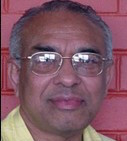Reforming Islam & The New World Order

Ever since the current wave Militant Islamism led by Al-Qaeda burst out of Saudi Arabia, the birth place of Wahhabism, captured an international foothold and destabilised many a household and nation the call to reform Islam has become louder and louder. Although one can understand the emotional anxiety of the callers in the context of the horrific acts of violence and terror unleashed by Muslim extremists their emotions only demonstrate on the one hand the enormity of ignorance that prevails amongst the callers about this living faith, which is by any count is the way of life of nearly one-fifth of humanity, and on the other their refusal to see the crucial link between Islamist militancy and the so called New World Order with its neo-liberal economic paradigm.
To start with, the reform seekers seem to assume that there is a monolithic entity called Islam that needs to be refined and reformed by someone like the Pope or by a governing body like the Vatican in Catholic Christianity. On the contrary, there is neither a universally recognized grand mufti nor an internationally empowered Muslim religious institution that can initiate and implement binding reforms in the world of Islam which now stretches from the Canada in the west to China in the east and from Scandinavia in the north to New Zealand in the south. This demographically vast and geographically dispersed faith community although united theoretically in the fundamental beliefs of Islam yet differs significantly in the translation of those beliefs in practice.
In reality, living Islam is a smorgasbord of beliefs and practices, customs and traditions, and, rulings and debates that are so multifarious and sometime even contradictory that it is almost impossible to condense them into a single entity. The name Islam itself was a convenient moniker invented by the Orientalists in the 18th and 19th centuries who essentialised the theological, juridical, philosophical and cultural heterogeneity that pervaded the Muslim world since the 7th century in order for that invented entity to be compared and contrasted with Christianity and Christian civilization of the inventors with a deliberate intention of denigrating the faith of the Muslims.
Within the spiritual amalgam of Muslims are the Islams of the mystics or Sufis, of the theologians of different schools within the Sunni and Shia sects, of the philosophers and rationalists, and above all of the syncretic faith of the Muslim masses, just to name a few. All these islams derive their existential rationale from the way each of them interpret the original sources of the faith mainly the Quran and the actions and sayings of the Prophet, the Hadith. Even within a particular variety of Islam some believers view these sources as contextually constrained and therefore their contents are subject to debates and discursiveness, while others believe that they are context-free and time-free and therefore should be accepted on face value. The militant Islamists belong to the latter category and herein lies the crux of the problem regarding reformation in Islam. Which Islam does one want to reform?
In a free and competitive market for goods and services the ones that are of superior quality would naturally fetch a high price and would be demanded intensely while the inferior ones would lose demand and disappear from the market eventually. Some goods and services may come and go with season and fashion. This economic truism is also applicable to the market for ideas and ideologies.
Militant Islamism driven by its narrow interpretation of the foundational religious texts is a recent and minority ideology that has captivated the attention of certain sections of world Muslims. However, what sustains that ideology as a threatening force to world peace and stability is not its theological content per se but the political and economic environment that surrounds it. This environment is the so called NWO.
The inequities and injustices embedded in NWO, especially in the Muslim Middle East, is closely linked to the rise of Islamist militancy. It is a pity that those who are demanding reforms in Islam do not seem to comprehend this umbilical cord between Islamist militancy and NWO.
None of the post-colonial Muslim Middle East regimes embraced the Islamist ideology when they became independent. Only Saudi Arabia which was not colonized declared Islam as its constitution with its ultraconservative Wahhabi teachings. Even in the pre-colonial Ottoman Empire which governed the territories of the post-colonial nations Islamism was not the ruling ideology. Islam and Islamism became a rallying cry only when the Ottomans faced an existential threat from the emerging Western nations, especially from Britain and France.

